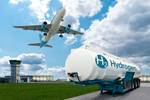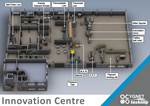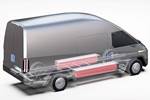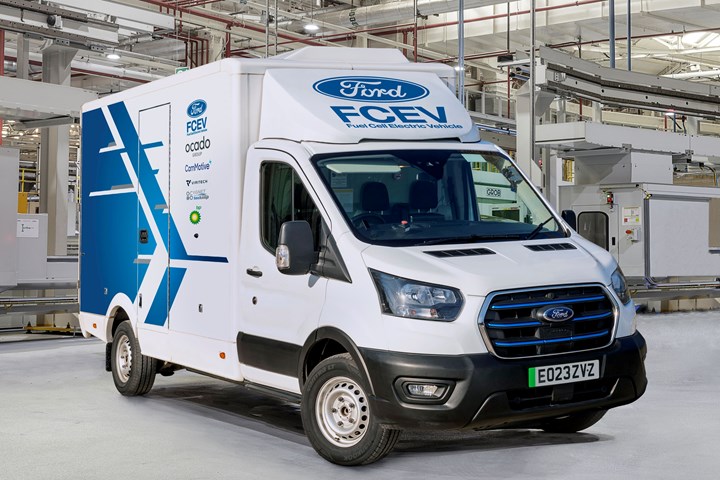Cygnet Texkimp joins U.K. project for hydrogen-powered Ford E-Transit development
Named a technology partner for the three-year FCVGen2.0 project, Cygnet’s role is to optimize the composites recycling machinery and process for EOL composite hydrogen tank reclaim and reuse.
Composites technology company Cygnet Texkimp (Northwich, U.K) has been announced as a technology partner in a £16 million project to develop a hydrogen-powered version of the iconic Ford Transit commercial vehicle.
The FCVGen2.0 project has been created to design, build and trial a small fleet of fuel-cell powered Ford E-Transits which maximize hydrogen storage capacity, and to develop and evaluate a viable form of recycling for end-of-life (EOL) fuel tank components.
The three-year project is led by global automotive company Ford (Dearborn, Mich., U.S.) with joint funding from the UK government, awarded through the Advanced Propulsion Centre (APC) Collaborative Research and Development program. It aligns with ambitions by the U.K. government and industry to build an end-to-end supply chain for zero-emission vehicles. According to Cygnet Texkimp, the project is designed to increase the power and range of hydrogen-powered light commercial vehicles (LCVs), initially using a low-volume test fleet of eight fuel cell Ford E-Transits, and to prove a business case for their wider rollout. The capability for fuel cell system assembly and vehicle conversion will be built at Ford’s Dagenham Estate in Essex, U.K.
Cygnet Texkimp has been named as a technology partner alongside hydrogen powertrain solutions specialist Viritech (Nuneaton, Warwickshire) and powertrain engineering and testing company CamMotive (Cambustion’s EV group, Cambridge), with integrated energy company, bp and grocery retailer, Ocado Retail (Hatfield), completing the consortium of U.K. companies.
Cygnet Texkimp’s role is to optimize the composites recycling machinery and process needed to reclaim high-quality composite fibers from hydrogen storage tanks at the end of their useful life and reuse them in new hydrogen vessels or in other applications. The company will focus on further developing its composites reclaiming solution, which incorporates the DEECOM fiber recycling process, specifically for hydrogen tanks. It will also provide fiber handling expertise and machinery for the manufacture of carbon overwrapped hydrogen pressure vessels throughout the project.
“Sustainable EOL management of hydrogen tanks is a challenge we need to address now, before hydrogen-powered vehicles are the norm,” says Cygnet Texkimp’s Andy Whitham. “By developing technologies that allow efficient reclamation of the high-quality composite fibers used in hydrogen tanks, we can create a secure supply of recycled carbon fiber amid a significant global shortage of virgin fiber. This new source of fiber will also mean that important work in the development of vehicle lightweighting materials and methods can continue to advance, despite a finite supply of carbon fiber.”
“Our focus is on giving composites a viable second life,” Whitham continues. “In doing so we can proactively reduce their impact on the environment and overcome the problem of materials supply.”
Related Content
-
Bioabsorbable and degradable glass fibers, compostable composite parts
ABM Composite offers sustainable options and up to a 60% reduction in carbon footprint for glass fiber-reinforced composites.
-
TU Munich develops cuboidal conformable tanks using carbon fiber composites for increased hydrogen storage
Flat tank enabling standard platform for BEV and FCEV uses thermoplastic and thermoset composites, overwrapped skeleton design in pursuit of 25% more H2 storage.
-
JEC World 2023 highlights: Innovative prepregs, bio-resins, automation, business development
CW’s Jeff Sloan checks in with JEC innovations from Solvay, A&P, Nikkiso, Voith, Hexcel, KraussMaffei, FILL, Web Industries, Sicomin, Bakelite Synthetics, Westlake Epoxy and Reliance Industries.
















